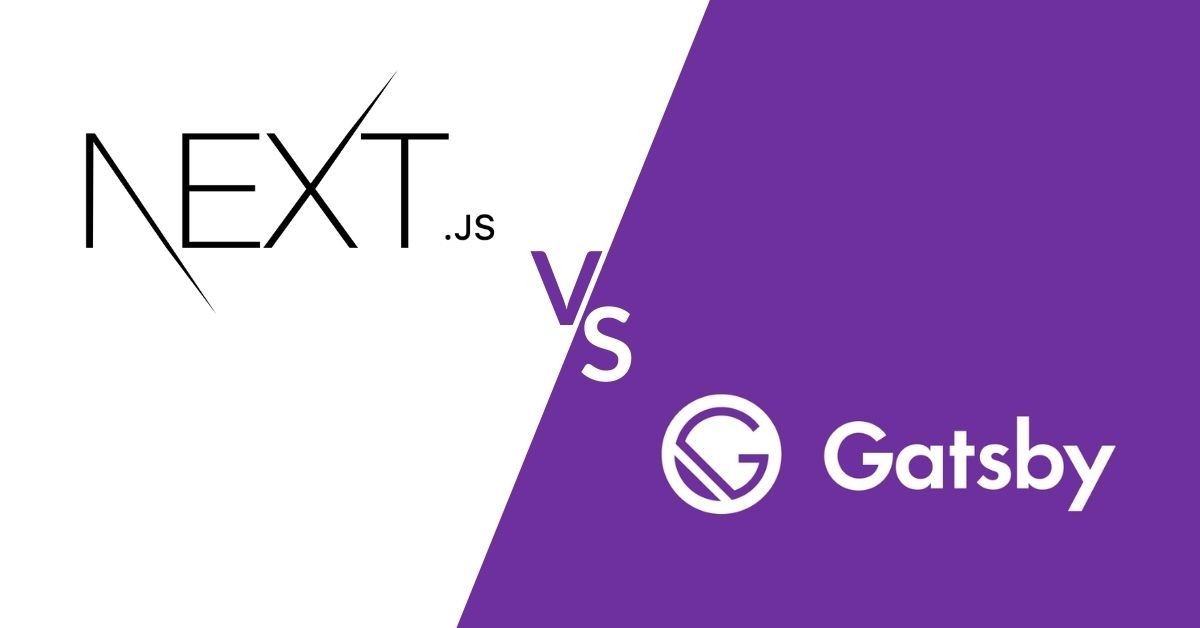
Gatsby vs Next JS in 2023
In recent years, the lines between server-side rendering and static site generation have become blurred with advancements in both Next.js and Gatsby. In 2023, a thorough comparison was made between these two popular frameworks to shed light on their strengths and weaknesses. Let's delve into their features and capabilities to understand which one might be more suitable for specific use cases.
In 2023, I compared both:
* Image source: https://dev.to/alex_barashkov/comparing-gatsby-and-nextjs-for-website-development-13b7
1. Commerce:
Gatsby proves to be an excellent choice when integrating with headless CMS platforms like BigCommerce and Shopify. On the other hand, Next.js provides its own solution called Next.js Commerce.
2. Plugin & Templates:
Gatsby has a significant advantage with over 3000 stable plugins and templates, saving developers valuable time during the development process. In contrast, Next.js doesn't have a dedicated plugin or template ecosystem.
3. Image Cropping and optimisation :
Both Gatsby and Next.js offer options for image cropping and device-based image optimization, resulting in faster-loading images.
4. Incremental Build:
Both frameworks support incremental builds, allowing for faster updates to the deployed websites.
5. Preferred deployment space:
Gatsby is best suited for deployment on the Gatsby cloud, while Next.js deployments are recommended on Vercel.
6. Core Web Vitals:
Gatsby claims to excel in core web vitals compared to Next.js, promising improved website performance.
7. Community:
Both frameworks boast active communities, with Next.js having a larger number of stars on GitHub and more questions on StackOverflow compared to Gatsby.
8. Data fetching:
Gatsby promotes the use of GraphQL and highly recommends it to its users, whereas Next.js doesn't impose any specific data-fetching technology.
9. Troubleshooting:
Troubleshooting code in Gatsby can be challenging when relying heavily on plugins, unlike Next.js, where this issue is less prevalent.
10. Latest React features:
Next.js has an edge when it comes to supporting the latest React features, including the React Server component. Gatsby's support for these features is yet to be updated.
领英推荐
11. Rendering method:
Gatsby uses Deferred Static Generation, while Next.js utilizes Incremental Static Generation (ISR). Gatsby allows configuring pages for DSG, while ISR in Next.js is currently in beta.
12. Docker:
Gatsby facilitates deploying websites in a Docker container, while Next.js can be deployed on any hosting provider supporting Docker containers.
13. Integration with AEM and Sitecore:
Next.js has detailed integration support with AEM and Sitecore for content fragments, while Gatsby's integration details are not as readily available.
14. Mono Repos:
Gatsby relies on Lorna and Travis for mono repos, while Next.js employs Turbo repo for this purpose.
15. Integration with CMS:
Both frameworks support integration with structured content management systems like Contentful and WYSIWYG platforms like WordPress.
16. Integration with Algolia search:
Both Gatsby and Next.js provide smooth integration with Algolia search.
17. Performance Monitoring:
Next.js offers analytics integration with Vercel for real-time performance monitoring, while Gatsby cloud provides Lighthouse Performance Reports during CI/CD deployments.
18. Backend integration:
Gatsby allows seamless integration with various backend services like Auth0, Google Auth, SendGrid, Twilio, and more. Next.js also supports these integrations, albeit with a limited number of snippets available.
* Image source: https://www.gatsbyjs.com/products/cloud/functions/
When Gatsby:
When NextJS:
Ultimately, the choice between Next.js and Gatsby depends on the specific requirements of the project. If GraphQL, stability, and pre-built plugins/templates are crucial, Gatsby might be the preferred choice. On the other hand, if complete control over data manipulation, frequent website changes, and the latest React features are prioritized, Next.js would be a suitable option.
Please note that the information provided here is based on publicly available data, and personal preferences may vary. We encourage further discussion and exploration to make an informed decision based on specific project needs.
References:
Senior Software Engineer
2 年Go with nextjs if you want to avoid spending hours of your life fixing npm dependency issues every month ????